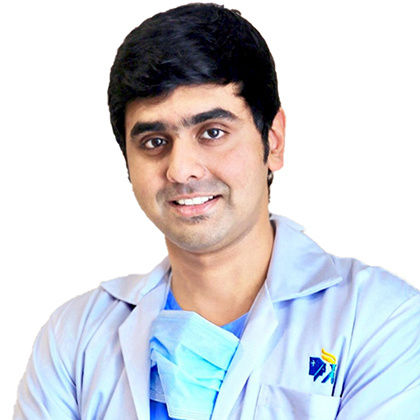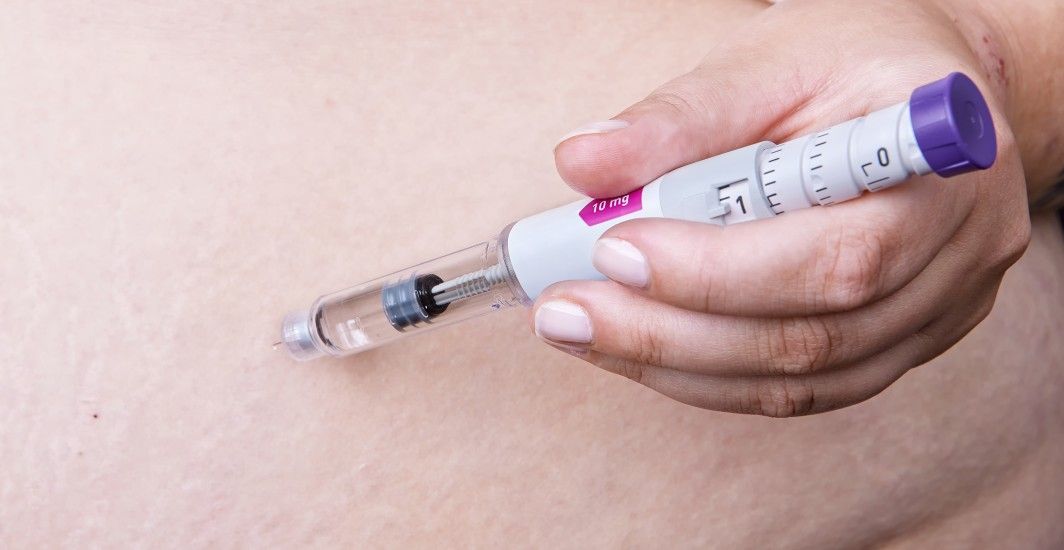Bariatric Surgery Myths vs Facts
Uncover the truth about bariatric surgery as we break down common myths and highlight the facts to help you make informed health decisions.


Introduction
Bariatric surgery stands as one of the most effective, long-term solutions for severe obesity and its related health conditions. Yet, despite its proven success, a cloud of misinformation and persistent myths prevents many from seeking this potentially life-saving treatment. These misconceptions often stem from outdated practices, social stigma, and a simple lack of awareness. This guide aims to pull back that curtain, directly addressing and debunking the most common myths about bariatric surgery. We'll replace fear with facts, so you can make informed decisions about your health based on reality, not fiction. Whether you're considering this path for yourself or a loved one, understanding the truth is the first step toward a healthier future.
Myth 1: Bariatric Surgery is the "Easy Way Out"
This is perhaps the most pervasive and damaging myth. The notion that choosing surgery is a shortcut or a cheat code fundamentally misunderstands the entire process. Bariatric surgery is not an easy way out; it is a powerful tool that requires immense and lifelong commitment.
The Reality of the Life-Long Commitment
- The surgery itself is a single event, but the journey encompasses what comes before and after. Patients undergo extensive pre-operative evaluations, including nutritional counselling and psychological assessments, to ensure they are prepared for the permanent lifestyle changes ahead. Post-operatively, the work intensifies. Patients must adhere to a strict, phased diet, learn to eat tiny portions slowly, prioritise protein, avoid sugary foods that can cause "dumping syndrome," and commit to a new relationship with food and exercise.
The Psychological and Dietary Work Required
- Calling it the "easy way" ignores the significant psychological adaptation required. Surgery helps control hunger hormones, but it doesn't erase decades of emotional eating habits or food addiction. Patients often work closely with therapists and support groups to build healthy coping mechanisms. The path is challenging, requiring discipline and resilience every single day. It’s a trade: exchanging the struggle of constant dieting for the structured commitment to a new health-focused lifestyle.
Consult a Bariatric Surgeon for the best advice
Myth 2: It's Extremely Dangerous and the Risks Outweigh the Benefits
All surgeries carry risk, and bariatric surgery is no exception. However, calling it "extremely dangerous" is a dramatic overstatement, especially when viewed in the context of modern medical advances and the alternative.
Comparing Surgical Risks to the Risks of Severe Obesity
- It's crucial to frame the risk correctly. The long-term health risks of living with severe obesity (Class II and III) are far greater and more probable than the risks of surgery. Conditions like heart disease, stroke, type 2 diabetes, certain cancers, and sleep apnea significantly reduce life expectancy and quality of life. Bariatric surgery is a treatment to mitigate these proven, life-threatening risks.
Data on Modern Laparoscopic Surgery Safety
- Technological advancements have drastically improved safety profiles. Most procedures are now performed laparoscopically (minimally invasive), leading to smaller incisions, less pain, reduced blood loss, and faster recovery times. According to the American Society for Metabolic and Bariatric Surgery (ASMBS), the risk of major complications is very low, around 4%, and the mortality rate is approximately 0.1%, a risk comparable to or even lower than that of gallbladder surgery or hip replacement.
Myth 3: You'll Become Malnourished and Unhealthy
This myth stems from a misunderstanding of how the surgery works. While certain procedures, like gastric bypass, do alter the pathway of food and can affect the absorption of some nutrients, this does not lead to malnutrition if patients follow medical guidance.
The Science Behind Nutrient Absorption Post-Surgery
- The goal of surgery is to reduce calorie intake while promoting a healthier diet. However, the body's ability to absorb essential vitamins and minerals can be impacted. This is a known and managed outcome, not an unexpected side effect.
The Role of Lifelong Supplementation and Monitoring
- Preventing malnutrition is a core part of post-operative care. Patients are prescribed a strict regimen of daily multivitamins, calcium, vitamin D, vitamin B12, and sometimes iron supplements for life. Furthermore, they commit to regular follow-up blood tests to monitor their nutrient levels. This proactive approach ensures that any deficiencies are caught and corrected early, allowing patients to be healthier and better nourished than they were prior to surgery, often reversing existing deficiencies caused by poor dietary habits.
Myth 4: It's Purely a Cosmetic Procedure
This myth dangerously trivialises bariatric surgery. It is not cosmetic surgery; it is metabolic surgery. Its primary goal is not to achieve a certain look but to treat a disease, obesity, and its many related co-morbidities, fundamentally improving health and longevity.
Bariatric Surgery as a Treatment for Co-morbidities
The most significant outcomes are measured in health improvements, not just pounds lost.
Improvement and Remission of Type 2 Diabetes
- Studies show that bariatric surgery can lead to the remission of type 2 diabetes in up to 80% of patients. This is often achieved within days of the surgery, even before significant weight loss occurs, due to changes in gut hormones that affect insulin production and sensitivity.
Resolution of Sleep Apnea and Hypertension
- A vast majority of patients see a significant improvement or complete resolution of obstructive sleep apnea, often allowing them to stop using a CPAP machine. Similarly, high blood pressure, high cholesterol, and acid reflux disease are frequently improved or resolved, reducing the need for medication.
Myth 5: You Can't Ever Eat Normally Again
"Normal" is a relative term. Patients cannot return to their old "normal" of large portions, fast eating, and high-calorie foods. However, they establish a "new normal" that is healthier and sustainable.
The Phased Dietary Progression
- The post-surgery diet is phased. It begins with liquids, progresses to purees, then soft foods, and finally, after about two months, to solid foods. The goal is to reintroduce foods safely.
The Concept of "New Normal" and Portion Control
- Eventually, patients can eat most of the same foods they did before, just in dramatically smaller quantities. The focus shifts to protein-rich foods, vegetables, and whole grains. The surgery helps retrain the body and mind to recognize fullness and make healthier choices. While a few bites of a celebratory cake might be possible, the body often rejects sugary, high-fat foods, naturally steering patients toward better options. If you are struggling to establish a healthy diet after any major life change, consulting a nutritionist via Apollo24|7 can provide personalised guidance.
Myth 6: The Weight Always Comes Back
While weight regain is a possibility, stating that it "always" happens is false. Long-term studies show that most patients maintain successful weight loss, defined as keeping off more than 50% of their excess weight for over 10 years.
Understanding Weight Regain: Causes and Prevention
- Weight regain is usually not a failure of the surgery itself but can occur due to stretching of the stomach pouch over time, hormonal adaptations, or a return to old eating habits. This is why lifelong follow-up care, including support groups, nutritional counselling, and psychological care, is critical for lasting success. The tool is always there, but it must be used correctly.
Long-Term Success Rates and Study Data
- Data from the National Weight Control Registry shows that bariatric surgery has the highest success rate for long-term weight loss compared to all other non-surgical methods. For instance, patients typically maintain 60-70% excess weight loss after 10 years, a feat extremely rare through diet and exercise alone for those with severe obesity.
Myth 7: It's Only for the Morbidly Obese
While traditional criteria focused on a Body Mass Index (BMI) of 40+ (or 35+ with co-morbidities), guidelines have evolved.
Expanding BMI Criteria and the Role of Co-morbidities
- The FDA has approved certain procedures for patients with a BMI as low as 30-35 with significant weight-related health problems, such as type 2 diabetes. The decision is increasingly based on health status, not just a number on the scale.
Metabolic Surgery for Lower BMI Patients with Diabetes
- The remarkable effect on blood sugar control has led to the recognition of "metabolic surgery" as a standard treatment option for type 2 diabetes in appropriate patients, even at lower BMIs, as endorsed by international diabetes organisations.
Myth 8: You'll Never Be Able to Have Children
On the contrary, for many women struggling with obesity-related infertility (often due to PCOS), bariatric surgery can improve fertility by restoring hormonal balance and ovulation.
The Truth About Fertility and Pregnancy After Surgery
- It is strongly recommended that women wait 12-18 months after surgery before trying to conceive. This waiting period allows for weight stabilisation and ensures the mother's body is not nutrient-deficient during the critical first trimester.
Recommended Waiting Period and Nutritional Guidance
- Pregnancies after bariatric surgery are considered high-risk but are typically far healthier than pregnancies at a high BMI. They require careful management by an OB-GYN who understands the patient's surgical history, with close monitoring of weight gain and nutrient levels. Apollo24|7 offers convenient home collection for tests like iron and vitamin B12, making this monitoring easier for expectant mothers.
Get Your Health Assessed
Conclusion
The decision to undergo bariatric surgery is profound and deeply personal. It should not be hindered by outdated stereotypes and false information. As we've explored, the common myths surrounding this procedure that it's the easy way out, dangerously risky, or purely cosmetic crumble under the weight of scientific evidence and countless patient success stories. Bariatric surgery is a medically supervised journey that provides a powerful tool to combat a complex disease, offering a path to not just weight loss, but to the remission of other conditions, renewed energy, and a dramatically improved quality of life. If you or someone you know is struggling with obesity and its health impacts, empower yourself with knowledge from credible sources. The most important step is to have an open, honest conversation with a qualified medical professional to see if this option is right for you. Consult a bariatric surgeon online with Apollo24|7 to get your specific questions answered by an expert.
Consult a Bariatric Surgeon for the best advice
Consult a Bariatric Surgeon for the best advice

Dr. Anand Ravi
General Physician
2 Years • MBBS
Bengaluru
PRESTIGE SHANTHINIKETAN - SOCIETY CLINIC, Bengaluru

Dr. Kiran K J
General and Laparoscopic Surgeon
18 Years • MBBS, MS, FMAS, DMAS (Fellow & Dip in Min. Access surg.), FALS- Bariatric & Robotic Surgery
Bengaluru
Apollo Hospitals Bannerghatta Road, Bengaluru
(50+ Patients)

Dr. Saket Goel
General Surgeon
27 Years • MBBS, MS (Surg.)
Delhi
Apollo Hospitals Indraprastha, Delhi
(125+ Patients)

Dr. Sunil Kaul
General Surgeon
30 Years • MBBS, MS, FICS, FIMSA, FMAS
Delhi
Apollo Hospitals Indraprastha, Delhi
(25+ Patients)

Dr. Nikhilesh Krishna
Bariatrician
7 Years • MS, FMAS, FALBS
Chennai
Apollo Hospitals Greams Road, Chennai
Consult a Bariatric Surgeon for the best advice

Dr. Anand Ravi
General Physician
2 Years • MBBS
Bengaluru
PRESTIGE SHANTHINIKETAN - SOCIETY CLINIC, Bengaluru

Dr. Kiran K J
General and Laparoscopic Surgeon
18 Years • MBBS, MS, FMAS, DMAS (Fellow & Dip in Min. Access surg.), FALS- Bariatric & Robotic Surgery
Bengaluru
Apollo Hospitals Bannerghatta Road, Bengaluru
(50+ Patients)

Dr. Saket Goel
General Surgeon
27 Years • MBBS, MS (Surg.)
Delhi
Apollo Hospitals Indraprastha, Delhi
(125+ Patients)

Dr. Sunil Kaul
General Surgeon
30 Years • MBBS, MS, FICS, FIMSA, FMAS
Delhi
Apollo Hospitals Indraprastha, Delhi
(25+ Patients)

Dr. Nikhilesh Krishna
Bariatrician
7 Years • MS, FMAS, FALBS
Chennai
Apollo Hospitals Greams Road, Chennai
More articles from Weight Loss
Frequently Asked Questions
Is bariatric surgery covered by insurance?
Many insurance plans do cover bariatric surgery if you meet specific criteria based on your BMI and co-morbidities. It's essential to check with your individual provider and understand their requirements for pre-authorization.
What is the typical recovery time after weight loss surgery?
Most patients stay in the hospital for 1-2 days after laparoscopic surgery. You can often return to normal activities within 2-4 weeks, but full recovery and adaptation to the new diet take several months.
Can the surgery be reversed?
While some procedures like the gastric band are reversible, and others like the sleeve gastrectomy are not, most bariatric surgeries are considered permanent. Reversal is complex and rare, typically only performed for severe medical complications.
Will I have loose skin after massive weight loss?
Significant weight loss often results in excess skin. The amount depends on factors like age, genetics, and how much weight you lose. Many patients choose to have post-bariatric plastic surgery to remove excess skin after their weight has stabilised for over a year.
How much does bariatric surgery cost out-of-pocket?
The cost varies widely by procedure, hospital, and country. It can range from several lakh rupees to much more. It's crucial to get a detailed breakdown that includes the surgeon, anesthesia, hospital stay, and follow-up care.




_0.webp)

